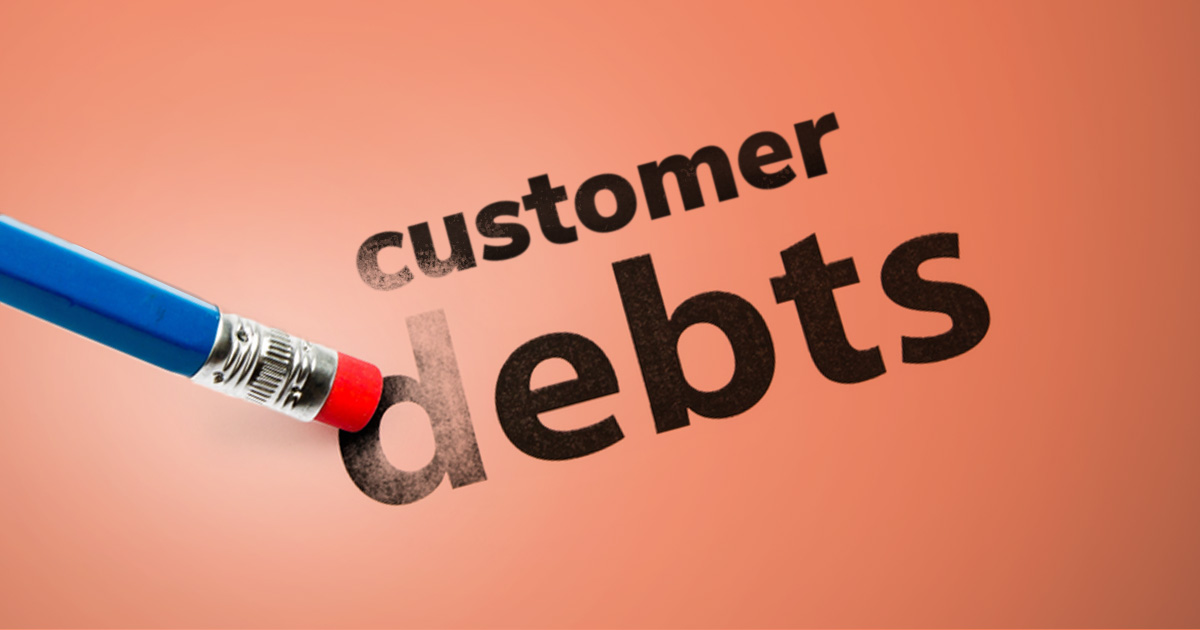Navigating debt collection is tough. Navigating it across the UK, US, and Australia? It's a minefield of different laws and customs. Get it wrong, and you risk fines and lost customers. Get it right, and you secure your cash flow globally.
Many businesses struggle with finding reliable, compliant, and effective collection call scripts and strategies that work across the legal and cultural landscapes of these regions.
This guide provides a clear roadmap: core call strategies, adaptable script templates, and crucial region-specific insights on compliance, communication, and objection handling.
What is a collection call script?
A collection call script is more than just words; it’s a structured guide for consistent, compliant, and effective communication. It is vital for cash flow, ensuring that you consistently follow best practices while navigating the specific laws of the UK, US, and Australia. A well-prepared script serves as a training tool for staff and helps reduce stress during calls by providing a clear pathway to follow.
When does an unpaid invoice need to be chased via a phone call?
Whether you've received a partial payment or no money at all, it's crucial that you aren't afraid to chase up clients. After all, this can negatively affect your business.
Three situations warrant a collection call using one of the debt collection scripts below.
- No favourable response after 3 chasing emails. You've been asking for an expected payment date or for a reason why an overdue bill remains unpaid for 3 emails in a row now. If you haven't had a satisfactory answer, it's time to follow up with a phone call.
- No response at all after 3 chasing emails. Much like the above situation, but worse. If you're sending email chasers at a reasonable pace and have been entirely ignored for 3in a row, it's time to pick up the telephone and collect your payment!
- To impose a sense of realism, e.g. if threatening legal action or working with a debt collection agency. If you have a particularly difficult customer who won't pay for your services, and it's come to take severe action, a phone call will help them see the reality of the situation. (Naturally, this call should not replace delivering the same information in writing; rather, it reinforces and complements the written notice.)
What should you include in your collection call script
An effective collection call script should include the following essential structure:
- Intro: Greet the debtor warmly and introduce yourself.
- Verify: Confirm the identity of the person you are speaking with.
- State facts: Clearly communicate the outstanding balance, invoice number, and due date.
- Pause: Allow the debtor time to respond or ask questions.
- Listen: Actively listen to their concerns or reasoning.
- Negotiate: Discuss potential repayment plans or solutions.
- Commit: Secure a commitment regarding the payment date.
- Summarise: Recap the conversation and confirm what was agreed upon.
- Close: Thank them for their time and summarize the next steps.
Additionally, adhere to best practices such as preparation, professionalism, maintaining empathy while being firm, and documentation of the conversation.
Understanding regional differences
To successfully collect debts across different borders, it's essential to understand regional nuances including regulations, communication styles, and cultural expectations.
Regulatory landscape
- UK: Familiarize yourself with data protection laws (GDPR) and FCA principles focusing on consumer rights and general business conduct to stay compliant.
- US: Follow the Fair Debt Collection Practices Act (FDCPA) and be aware of state-level variations, as well as the Telephone Consumer Protection Act (TCPA).
- AU: Adhere to the Australian Competition and Consumer Commission (ACCC) and the Australian Securities and Investments Commission (ASIC) guidelines, along with the National Consumer Credit Protection Act and Privacy Act.
Communication and cultural nuances
Tone and directness can vastly differ across the UK, US, and Australia:
- United Kingdom: In the UK, a more formal and understated approach is generally preferred. Communications should be tactful and polite, avoiding any overly aggressive or confrontational language. Debtors often respond better to a professional and respectful tone that emphasizes collaboration and understanding rather than demands. It's advisable to be patient and allow for some back-and-forth, as a direct, hard-sell approach might be perceived as rude or pushy and could lead to resistance.
- United States: In contrast, the US typically favors a more direct and assertive communication style. Being clear, concise, and upfront about the debt and the expectations for repayment is often appreciated. While professionalism is still important, there's generally more room for a firm and results-oriented approach. Americans often value efficiency and expect a straightforward discussion of the facts.
- Australia: Australian communication tends to be informal and straightforward. A friendly but professional manner is often the most effective. Australians generally appreciate honesty and a no-nonsense approach, but delivered with a good-natured tone. Avoid overly formal language or overly aggressive tactics, as this might be met with skepticism or resistance. A conversational yet clear approach often works best.
It’s essential to know what negotiation approaches work best in each region and be prepared for common debtor responses and attitudes.
Call recording and consent rules
Understanding rules surrounding call recording varies across regions:
- UK: Must inform the debtor that the call is being recorded.
- US: Varies state by state; some require consent from one party while others require consent from all parties involved.
- AU: Generally requires consent to record the call, and it needs to be disclosed.
How to prepare for a credit control call
Before you use a script to improve your collection rates, there are a few preparatory steps to undertake. This helps ensure that your first call is also your last, as they will listen carefully and pay once the call has ended.
Firstly, prepare yourself mentally. Being asked for money, especially when it's rightfully owed, puts your customer in an awkward position—they may find themselves struggling to justify the unjustifiable. As long as you maintain a sense of polite professionalism and deal only with facts, the conversation cannot spiral. For example, start the conversation by wishing the other party a good morning or good afternoon.
Next, have all the necessary information in front of you. This includes:
- Invoice number
- Goods/services the invoice is for
- Invoice due date
- Number of days overdue (if applicable)
- Notes of communication had so far
- Who to talk to (or if you don't know, ask for Accounts Payable)
Finally, keep the objective in mind. The phone call isn't just to make customers feel bad because they haven't paid. In most cases, you want to achieve one of three things:
- Resolve any disputes
- Establish an expected payment date
- Remove any hurdles to payment
Want to put an end to poor payment behaviour from customers?
Collections can be awkward and time-consuming. But they don't have to be. See how you could let Chaser do the heavy work with polite, proactive, automated invoice chasing that gets you paid faster. Save your space on a 30-minute webinar to join thousands of businesses putting an end to late payments and boosting cash flow with Chaser.
6 sample collection call scripts for chasing payments
These sample scripts can help guide your collection calls, allowing for a natural conversation while still addressing the outstanding debt. Use the following scenarios to structure your calls effectively:
Scenario 1: They forgot to pay
Hey, [Debtor’s Name], it's [Your Name] from [Your Company]. How's it going?
Got a sec to chat?
I'm calling about invoice [Invoice Number] for [Amount Due] that was due on [Due Date]. Looks like we haven't received that payment yet.
[Wait for their response.]
[Acknowledge their response and allow them to express their thoughts.]
So, when can we expect that payment to come through?
Can I count on you to send it by [Agreed Date]?
Just to be clear, you'll send the [Amount Due] by [Agreed Date], right?
Thanks for your time today, [Debtor’s Name]. Really appreciate your help!
Scenario 2: They claim cash flow issues
Intro: "Hi, [Debtor’s Name], this is [Your Name] from [Your Company]. Is this a good time for a quick chat?"
Verify: "I'd like to discuss invoice [Invoice Number] that was due on [Due Date]."
State facts: "I see that the payment of [Amount Due] hasn't come through."
Pause: [Wait for their explanation.]
Listen: [Be attentive to their concerns about cash flow.]
Negotiate: "I completely understand that cash flow can be tight. Would it be possible for us to discuss a payment plan that works for you?"
Commit: "Can we agree on a smaller payment today and then the balance later?"
Summarise: "So, we’ll do [reiterate payment plan or agreement]."
Close: "Thanks for chatting, [Debtor’s Name]. I appreciate your willingness to work together on this."
Scenario 3: They haven't received the invoice
Intro: "Hello, [Debtor’s Name], this is [Your Name] from [Your Company]. I hope you’re doing well."
Verify: "Is now a good time for us to talk?"
State facts: "I’m reaching out about invoice [Invoice Number], which was due on [Due Date]."
Pause: [Leave space for them to respond.]
Listen: [Acknowledge their indication that they haven’t received the invoice.]
Negotiate: "I’d be happy to resend the invoice right away. Would you please confirm the best email address for you?"
Commit: "Can we set a date for when you expect to process this payment once you receive it?"
Summarise: "To confirm, I'll resend the invoice, and we agreed to check back on [Agreed Date]."
Close: "Thank you, [Debtor’s Name]. I appreciate your prompt attention to this."
Scenario 4: They dispute the charge
Good morning/afternoon, this is [Your Name] from [Your Company]. May I speak with [Debtor’s Name]?
[If connected with Debtor’s Name]:
"Thank you for taking my call. I am calling to discuss the outstanding invoice [Invoice Number] with a balance of [Amount Due].
I understand there may be a dispute regarding this invoice. Could you please outline the specific concerns prompting this dispute?
[Actively listen and acknowledge their dispute.]
I would like to understand your concerns thoroughly. To ensure an accurate resolution, I will need to review the details with my team. May I follow up with you once I have completed this review?
To recap, I will investigate this matter and contact you again by [Agreed Date].
Thank you for bringing this to my attention, [Debtor’s Name]. I appreciate your patience as we work to resolve this."
Scenario 5: They say they're busy
Intro: "Hello, [Debtor’s Name], this is [Your Name] from [Your Company]. How’s your day going?"
Verify: "Is this a brief moment for us to discuss your outstanding invoice?"
State facts: "I’m calling about invoice [Invoice Number], which was due on [Due Date]."
Pause: [Wait to see if they mention being busy.]
Listen: [Acknowledge that they’re pressed for time.]
Negotiate: "I understand you're busy. Would it be easier if I call you back at a more convenient time?"
Commit: "What would be a better time for you to discuss this?"
Summarise: "So, I’ll follow up with you on [Agreed Date/Time] to discuss the payment."
Close: "Thanks for your time today, [Debtor’s Name]. I look forward to our next chat!"
Scenario 6: They promised payment last week, but it never arrived
Intro: "Hi, [Debtor’s Name], this is [Your Name] from [Your Company]. I hope you’re well!"
Verify and State Purpose: "Is now a convenient time to chat? I'm following up on your recent commitment regarding invoice [Invoice Number], which was due last week."
Pause & Listen: [Allow them to share their situation and explain why the payment hasn’t come through.]
Negotiate: "I understand that things can come up unexpectedly. Can we set a new payment date together?"
Commit & Summarise: "Can I mark it down to have the payment completed by [New Agreed Date]? So, we’ve agreed that you’ll send the payment by [New Agreed Date]."
Close: "I appreciate your attention to this matter, [Debtor’s Name]. Thank you for speaking with me today!"
These scripts aim to foster constructive communication while clearly addressing the need for payment. Tailor your approach based on the debtor's response to maintain a professional and empathetic tone throughout the call.
Common collection call objections and how to handle them
In handling objections, it's crucial to emphasize empathy and firmness. Here are some common objections and how to address them:
- “The cheque’s in the post”: "I understand, but can we confirm a payment date so I know when to expect it?"
- “I haven’t received the invoice.”: "Let me resend it now to ensure you have all the details."
- “I have cash flow issues.”: "I completely understand these things happen. Can we work out a payment plan that fits your current situation?"
- “I’m disputing the charge.”: "I’d like to hear your concerns. Let’s discuss this further to resolve it."
- “I’ll pay when I can.”: "I understand times are tough. Can we figure out a fixed date that works for you?”
How to stay compliant during the collection call
When making collection calls, it's crucial to stay compliant. Here are some actions and phrases to avoid in each region:
- UK:
- Implicit threats: Avoid phrases like "If you don't pay, things will get much worse for you."
- Discussing owing amounts with third parties: Do not say "Can you tell [debtor's name] that they owe us money for a missed payment?" to anyone other than the debtor.
- Calling outside of appropriate hours: Collection calls should generally be made between 8:00 AM and 9:00 PM on weekdays. For more information, refer to the Financial Conduct Authority (FCA) Handbook.
- US:
- Misrepresentation or misleading statements: Do not use phrases such as "You will be arrested if you don't pay this debt immediately," or "This is an official government summons."
- Contacting the debtor at inconvenient times: Avoid calling before 8:00 AM or after 9:00 PM in the debtor's time zone, or at their place of employment if they have requested you not to.
- Failing to provide validation of the debt when requested: If requested, you must provide written validation of the debt, including the amount owed, the creditor's name, and the consumer's right to dispute the debt. This is mandated by the Fair Debt Collection Practices Act (FDCPA).
- AU:
- Threats or coercive tactics: Do not use phrases like "We will send someone to your house to collect this debt if you don't pay now."
- Discussing personal information with unauthorized parties: Avoid sharing any details about the debt with family members, friends, or employers of the debtor.
- Failing to abide by the given repeat contact scenarios: There are regulations regarding the frequency of contact. For detailed guidelines, consult the Australian Competition & Consumer Commission (ACCC) Debt Collection Guidelines.
The importance of meticulous record-keeping cannot be overstated, as it safeguards both the business and the debtor.
Collection call best practices for businesses
Preparation
Review the customer's last 3 invoices before calling. Look for patterns: Do they typically pay 15 days late? Have they negotiated payment plans before? This history determines whether you start with a gentle reminder or dive straight into payment plan options.
Timing
Mid-morning (10-11 AM) and early afternoon (2-3 PM) yield the highest contact rates because decision-makers are typically available after morning meetings but before end-of-day rushes. Avoid Mondays (planning day) and Fridays (week wrap-up).
Tone
Aim for a professional and empathetic yet firm tone to facilitate effective communication.
Active listening
It’s crucial to actively listen to what the debtor is saying, as this demonstrates respect and understanding.
Documentation
Record everything discussed during the call for future reference.
After the call
After using one of the above debt collection call scripts, be sure to make a note of the date, time, who you spoke with, and what was said or agreed. This way, you've noted all of the necessary information if you need to set up a payment plan or contact a debt collection agency to collect your outstanding debt.
Unfortunately, in some cases, further email chasing or phone calls may be necessary, and being able to refer back to what was previously agreed and when, can be key in keeping the customer on track to pay. Both now and in the future. This is because it holds them more accountable and ensures they pay invoices promptly. You must send them a final demand if they still do not pay.
Once the customer pays, don't forget to thank them for paying. And if they're starting to develop a trend as a late payer, try adjusting your email chasers going forward to better your chances of being paid on time in the future.
While collection calls can seem daunting, they are one of the easiest ways to improve cash flow within your company and protect your bank account.
Automate your collection call with Chaser auto-call
Manual collection calls consume 2-3 hours weekly for most businesses. Chaser auto-call feature eliminates this burden by automatically dialing overdue accounts and playing personalized messages, freeing your team to handle only the conversations that require negotiation.
To get started, try Chaser auto-call feature free for 10 days and simplify your collection process today.
Wrapping it up
A regionally aware approach to collection calls is essential. By using compliant, tailored scripts, you effectively protect your business while improving recovery rates.
FAQs




